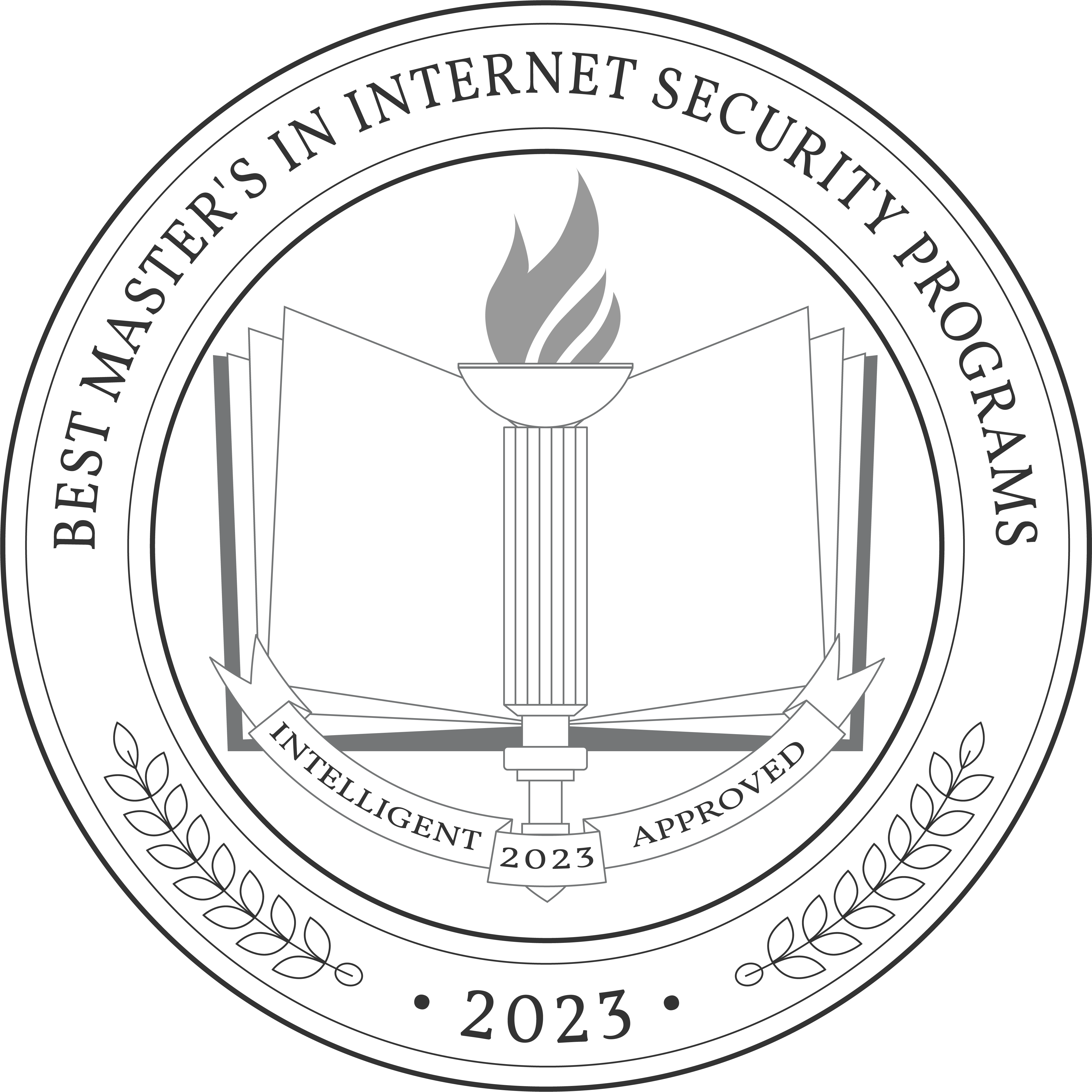Why This Matters
-
CYBERATTACKS COST ORGANIZATIONS $6 TRILLION EACH YEAR
Cybersecurity Ventures estimates the annual costs of cyberattacks will reach $6 trillion globally in 2021, making it the fastest-growing type of crime in the United States.
-
EMPLOYERS DEMAND MORE CYBERSECURITY EXPERTS
The Deloitte Center for Financial Services’ 2020 Cyber & Strategic Risk survey ranked “lack of skilled cyber professionals” among the top challenges companies face in cybersecurity management.
-
EARN $11,474 MORE WITH A MASTER’S DEGREE
A 2020 survey by the National Association of Colleges and Employers found that the starting salary for computer majors with a master’s degree was $11,474 higher than earnings for those with a bachelor’s degree.
Our Research
Our list details graduate programs providing a Master of Science degree in Cybersecurity, Information Security, Cyber Defense, or similar field of study. We reviewed a wide range of offerings, including in-person classes, online courses, and programs offering both delivery formats.
The Engineering Accreditation Commission of the Accreditation Board for Engineering and Technology (ABET) accredits programs in computing, engineering, technology, and applied and natural sciences. ABET accreditation reflects the nonprofit agency’s determination that these programs meet its quality standards for entering the cybersecurity profession at a level of high responsibility. Our list also includes a number of master’s programs offered by regionally accredited colleges and universities.
We evaluated each program on the basis of flexibility, faculty, course strength, cost, and reputation. Then we calculated the Intelligent Score for each program on a scale from 0 to 100. For a more extensive explanation, check out Our Ranking Methodology.
- 52 hours to write this article
- 160 universities and colleges we assessed
- 289 education programs we compared
The Top 50 Master’s in Internet Security Degree Programs

Discover More Options
What You Should Know About This Degree
A master of science degree in internet security may also be offered under names such as “information assurance” or “cybersecurity.” These postgraduate offerings emphasize cybersecurity to a greater degree than the master of science in computer science or specialized master’s degrees, such as IT management. A security-focused master’s degree familiarizes you with advanced tools, proven techniques, and industry best practices that prepare you to safeguard online computer systems from intruders.
ABET, the leading accreditation agency for master’s programs in security, has accredited more than 4,000 programs at 800-plus colleges and universities in 32 countries. Each year, more than 100,000 graduates complete their degrees at ABET-accredited institutions.
Job prospects are forecast to remain strong through the end of the decade as organizations increasingly rely on internet services to reach customers and the general public. The continued migration to cloud computing by organizations of all sizes and in all industries will help increase information security analyst employment by more than 30% through 2029, exceeding 171,000.
A variety of cybersecurity certifications are available to help professionals advance their careers. The Certified Information Systems Security Professional (CISSP) is considered the gold standard of designations in the field.
What’s Next?
Here are some questions to consider while researching master’s of science degree programs in internet security:
- Am I eligible for this program? Master’s programs in information technology typically require applicants to hold a bachelor’s degree, preferably in computer science. Some programs favor candidates who also work in IT security or a related discipline, such as network technology.
- How are online courses delivered? While on-campus classes typically meet on a regular schedule for lectures and lab work, online courses provide more flexibility. Some online offerings are synchronous, which requires everyone to log in remotely at the same time for lectures or projects. Asynchronous programs don’t have a meeting schedule; students work independently or within small groups to complete assignments. Make sure the program’s delivery method meets your needs.
Leave yourself plenty of time to explore the available alternatives for pursuing a postgraduate degree. Review any relevant deadlines and documentation requirements well in advance of your application so you can plan ahead.
Don’t forget to determine how you will finance your education. Schools provide information on their websites or through their admissions offices about scholarships, grants, and other forms of financial aid. Some employers also offer tuition reimbursement programs.